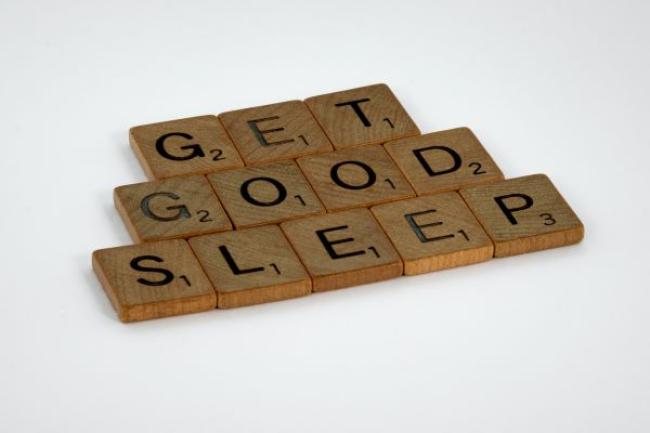Training
The Counseling and Wellness Center offers a variety of training programs to the campus community on topics related to mental health and well-being.
Training Topics
- Suicide Prevention
- Consent and Healthy Relationships
- Stress Resilience
- Mental Wellness Resources at WWU
Suicide Prevention Training

We all have a role to play in suicide prevention. The QPR (Question, Persuade, Refer) suicide prevention training teaches people how to recognize when someone may be at risk for suicide and how to connect them with immediate help.
Participants will learn:
- Common myths and facts associated with suicide
- Warning signs of suicide
- Tips for asking someone questions about suicide
- Methods for persuading suicidal individual to get help
- Ways to refer people at risk to local resources
Mental Wellness Resources at WWU

A comprehensive “tour” of mental health and wellness resources at WWU. Participants will be shown websites of resources for students at WWU in detail and hopefully will find new resources that are available to them, even through services they may be aware of. Participants will also be shown resources at WWU specifically for supporting staff and faculty in supporting their students.
How to Support Others

Appropriate for students who want to help a friend, partner, or family member who might be struggling, or who might want to address substance use or other concerning behaviors. The presentation covers how to be supportive, help others to get help, and looks at a model of how change happens.
Healthy Minds

This workshop offers tools for building resilience. Students learn about how to keep their minds balanced by engaging in different types of mental activities each day. This workshop also includes a brief overview of WWU resources for mental wellness.
Be Kind to Your Mind

This workshop explores the importance of self talk to mental wellness, as well as exploring strategies for increasing positive self talk habits. Students learn strategies to identify their self talk patterns and increase their positive self talk. This workshop also includes a brief overview of WWU resources for mental wellness.
Safe Messaging

This workshop explains the importance of using safe messaging practices when covering suicide and suicide prevention topics in the media. Students will learn about best practices for safe messaging. This workshop includes a case study about the YA novel and Netflix series “13 Reasons Why” to illustrate the importance of using safe messaging practices and the possible dangerous outcomes that can happen when they are not used.
Considerations for Presenting on Sensitive Topics

This workshop talks about the unique aspects of presenting or advocating about traditionally sensitive topics, such as mental health, suicide prevention, substance abuse, sexual health, and violence prevention. Students will discuss what makes this experience unique and things to consider before presenting. Students will participate in role play scenarios to strengthen their skills and gain confidence.
Substance Use Overview

Appropriate for Health Education majors and those who plan to enter similar fields. The presentation will cover difficulties in substance use prevention as well as what is and is not effective. Problematic substance use will be defined and the best way to approach someone we are concerned about will be discussed. The Stages of Change will be covered as well as various treatment options available, including local resources. This presentation has a shorter one-hour option and a longer, more detailed, two-hour option, split into two parts.
Mental Wellness Resources at WWU

A comprehensive “tour” of mental health and wellness resources at WWU. Students will be shown websites of resources at WWU in detail and hopefully will find new resources that are available to them, even through services they may be aware of.
Get Better Sleep

Having trouble sleeping? Check out this workshop to learn specific tools and strategies around sleep hygiene to help you wake up feeling rested.
Anxiety and Athletics

A presentation designed specifically for student athletes about anxiety. Anxiety is defined, and symptoms and impact are explored. Students learn about techniques that can be helpful, as well as how to support others who struggle with anxiety symptoms.
Consent 101

Lots of college students are interested in exploring sex and relationships. But how do we make sure everyone is having a good time? Every person is in charge of their body, and we all need to work with our partners to create physical and sexual experiences that feel great for everyone. This workshop will help students learn how to figure out what they like, what their boundaries are, and how to communicate desires and preferences with your partner or partners.
Healthy Relationships

There’s a lot of talk about red and green flags in relationships—but healthy relationships are not just a list of things to look for or avoid. They are a practice! Let’s talk about how to cultivate satisfying, mutually beneficial relationships of all kinds: romantic, platonic, or sexual. Relationships should feel mostly fun, but let’s talk about what healthy conflict looks like, and how to be a good partner, roommate, and friend. Topics covered include: power, communication, consent, conflict strategies, and data specific to the experiences of students at WWU.
Sexual Wellness

How can we tend to our sexual wellness as an aspect of our general wellness? What is considered “normal” and “not normal” when it comes to sexual health during early adulthood? What resources or practices do our bodies need in order to maintain sexual health? How can we be good partners and engage in our sexual lives and experiences in ways that are ethical and feel good for everyone? This interactive workshop will cover the concept of “sexual citizenship,” and help students think about their sexual projects and setting goals and expectations for what they need to communicate with their partners. Data specific to the sexual landscape at WWU, consent, information about pregnancy and STI prevention, media literacy and expectations around sex, and resources for sexual wellness will also be included.